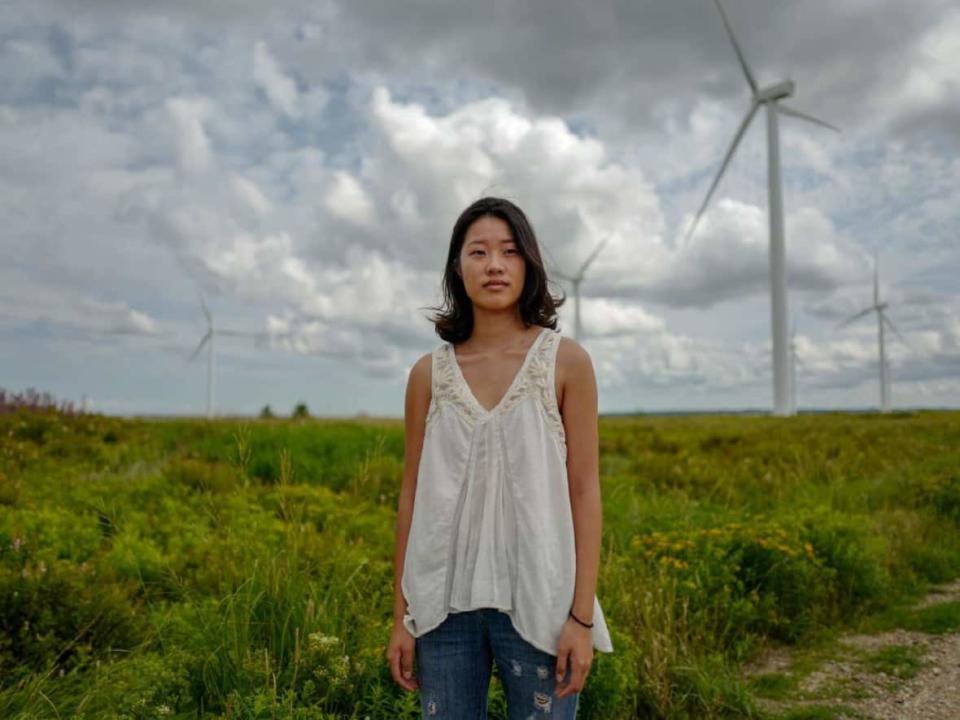COP26 from the perspective of BIPOC youth delegates

Youth delegate Tina Oh has returned home to Halifax from the United Nations Climate Change Conference, or COP26, in Glasgow, Scotland.
She and other BIPOC youth attended. It's her fourth trip to the conference.
Oh was featured by CBC as one of 13 Canadian environmentalists and innovators changing the planet for the better, and named one of Canada's top 25 environmentalists under age 25 by Starfish Canada.
Preston Mulligan of CBC Radio's Information Morning spoke to Oh on Friday.
This discussion has been edited for length and clarity.
How did your group of BIPOC youth delegates participate?
We support Black, Indigenous and racialized youth delegations to engage and intervene within the UN climate negotiations. And, frankly, the reason why we support them is because they're the generation to be the most impacted.
Their communities are on the front line of climate change. They're feeling the impacts to their lands, to their food systems, and so their voices are absolutely critical in these negotiations. Their interventions are the futures that we're willing to invest in, that I'm willing to invest in.
These youth are coming from communities who for so long and still continue to be shut out from these types of international spaces.
What I mean is that they were intervening and engaging, we had youth that were involved in the policy aspect, but we also had youth who were engaging in direct action inside the negotiation space, really holding politicians accountable and saying enough is enough.
Business as usual is not working.
What is your take, Tina, on the conference's inclusion of Black, Indigenous, non-colonial perspectives?
The representation is abysmal.
The largest delegate delegation that was present at this press conference were actually delegates from oil and gas companies.
Essentially the fossil fuel industry, Big Oil, had more seats than the U.K. government, which was hosting these conferences.
In terms of youth, in terms of Black, Indigenous, people of colour, there's no access to these negotiations or really limited access.
Then we see the people who do have the biggest delegation, the biggest access, and then that question really leads us to who's actually hosting this conference?
Greta Thunberg called it a North American greenwashing festival, and honestly, Preston, that's exactly what I saw.
I wonder, what's your take on how climate change? I mean, it disproportionately affects disadvantaged communities. Yes. How is BIPOC activism different than from other climate activism?
In terms of this round of negotiations … the message that they were there with is saying, colonization is the root cause of climate change.
We can't be talking about, biking to work, turning off the lights, conserving water. Although of course, those are all things that we should think about and certainly do, and they're not bad things to do. But in terms of the greatest impact, because we are in this climate crisis far beyond just one individual's actions can repair.
And so really, to nail down what are the root causes of climate change? It's been a history of colonization, a history of not having the right types of relationships with the land, with the water.
Those are the messages that these communities are bringing along.
What's your take on how effective this conference was? Do you agree with Greta Thunberg that it was greenwashing? Or do you feel like you got something done?
Definitely a bit of both. So, yes, I absolutely agree, it was a greenwashing festival, especially from the bureaucratic angles.
The first few days of the conference was the World Leaders Summit, so we saw Joe Biden enter into the conference. Justin Trudeau was there, world leaders from all over the world. It's a photo-op for them.
They got a nice photo taken showing that they're working on climate change. Maybe they're making some policies, but often those policies we're seeing are pushed back from 2030, 2040, 2050, while the climate crisis doesn't wait until 2050. What we really need to see are actions now.
For your second question as to whether we got things done? I absolutely believe we did.
I saw so much incredible resistance more than ever before, whether they were inside or outside the conference. It was ordinary people, working people, Indigenous leaders and elders, young people, environmental organizations saying enough is enough.
MORE TOP STORIES

